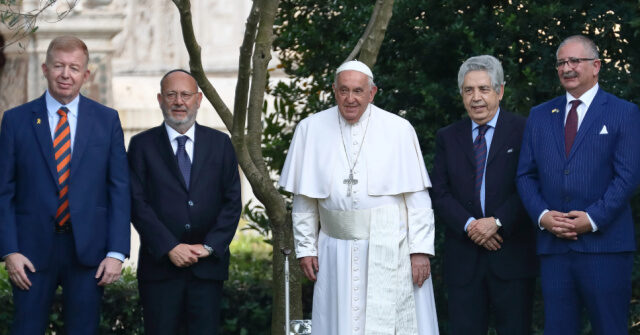U.S. President-elect Donald Trump has appointed Brian Burch, the president of CatholicVote, as the new U.S. Ambassador to the Holy See, as announced via his Truth Social account. Trump praised Burch for his devout Catholic faith, his role as a father of nine, and his significant accomplishments in building a large Catholic advocacy organization in the United States. The president-elect lauded Burch’s effort in gaining an unprecedented number of Catholic votes in the recent election, highlighting a remarkable 15-point lead over opponent Kamala Harris among U.S. voters, suggesting that this victory underscores the increasing influence of Catholic voters in American politics. Trump expressed confidence in Burch’s dedication to both the Church and the nation, emphasizing that he would not only fulfill his role competently but also instill pride within the Catholic community and the country as a whole.
In response to his nomination, CatholicVote celebrated the appointment, remarking on the significance of Catholic representation in U.S. politics. Burch himself conveyed his deep honor and humility at the nomination, expressing gratitude to various individuals instrumental in his journey, including his wife Sara, their nine children, his CatholicVote team, and supporters. He poignantly acknowledged the influence of his late father, who instilled in him the values of faith and citizenship, reflecting on the blessings and responsibilities tied to both identities. This underscores Burch’s commitment to uphold Catholic values in his future role, resonating with the broader community he represents.
Burch has been vocal about his criticism against Kamala Harris, particularly for what he termed her “anti-Catholic bigotry.” He referenced her interrogation of U.S. District Court nominee Brian C. Buescher in 2018 regarding his Knights of Columbus membership, suggesting that such affiliations could render a candidate unfit for federal judgeship due to their alignment with certain Catholic doctrines. Burch articulated that Harris’s behavior exemplified a broader pattern of intolerance against people of faith, marking her as a symbol of what he views as the deficiencies of hard-left politicians. His commentary aligns with a growing unease among Catholics regarding the increasing scrutiny of religious beliefs in the political arena, particularly as it pertains to advocating for traditional values.
The political landscape shifted noticeably during and after Trump’s electoral victory, with Burch emphasizing the critical role of Catholic voters in emerging trends. He noted that exit polls indicated a significant margin by which Trump outperformed Harris among Catholic voters, potentially the largest in several decades. Burch maintained that this substantial support can be connected to the Republican Party’s focus on policies aimed at bettering the economic situation for families and individuals affected by issues like inflation and immigration.
Burch attributed the electoral success of both Trump and J.D. Vance to their appeal to Catholic voters, who were drawn to a combination of family-oriented social policies and a strong economic agenda. He underscored the divergence in religious rhetoric between Trump and Harris, with Harris’s dismissal of faith-based perspectives on abortion likely alienating her from many religious voters. This growing alignment between Catholic voters and the Republican agenda signals a transformative shift in electoral politics and underlines the critical nature of Catholic engagement within the emerging political climate.
The appointment of Brian Burch serves as a microcosm of broader socio-political dynamics in the United States, where issues of faith, family, and economic concerns intertwine. As Burch transitions into his ambassadorial role, his responsibility will encompass not merely diplomatic relations but also the representation of a community whose values are increasingly influential in shaping national conversations. The potential for Catholic advocacy and representation in spheres of political power underscores the changing landscape, as both CatholicVote and Burch aim to solidify their presence and impact within the continuum of American civic life, advocating for policies consistent with their faith-based principles. Burch’s journey exemplifies how the intersection of faith and politics can yield significant consequences for both communities of faith and the broader political environment.

